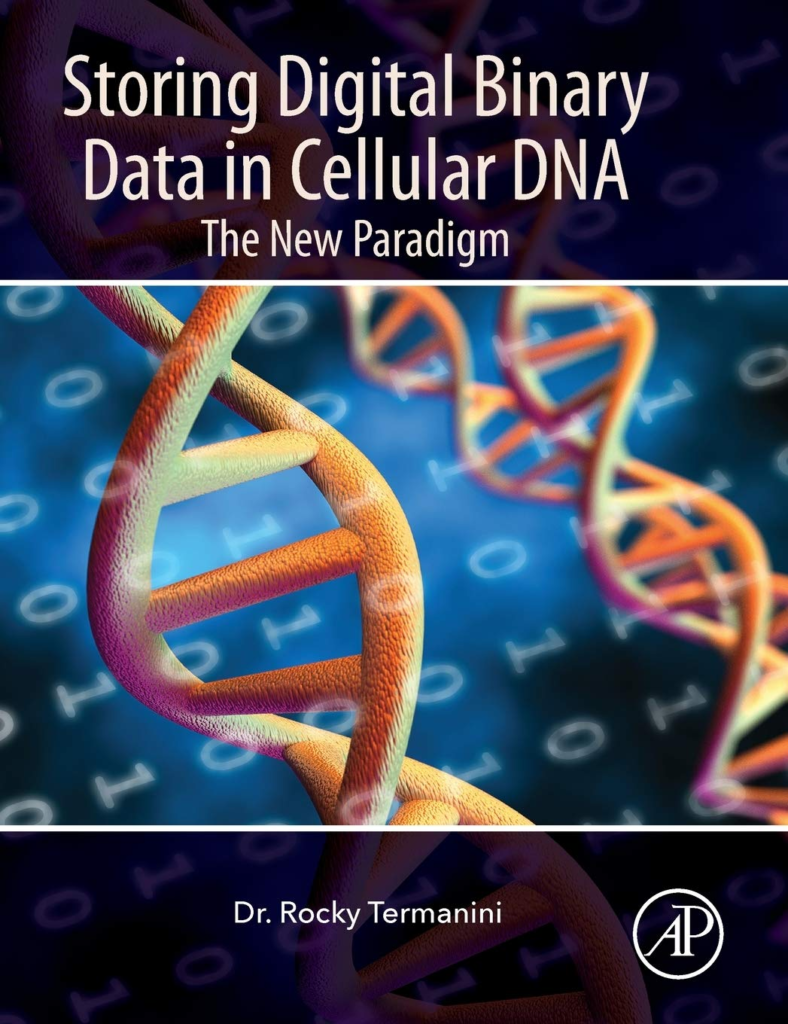DNA as a Data Storage Medium
DNA, or deoxyribonucleic acid, serves as the fundamental building block of life, encoding genetic information essential for the development and function of all living organisms. Each DNA molecule consists of a long chain of nucleotides, which are the basic units of genetic code. A nucleotide comprises three components: a phosphate group, a sugar molecule, and a nitrogenous base. The sequence of these nitrogenous bases—adenine (A), cytosine (C), guanine (G), and thymine (T)—encodes specific information, and it is this property that researchers are exploring for the potential use of DNA as a data storage medium.
The advantages of using DNA for data storage over traditional methods, such as magnetic disks or flash drives, are significant. DNA is incredibly dense, allowing for the storage of vast amounts of data in a minuscule volume. Estimates suggest that a gram of DNA could theoretically accommodate around 215 petabytes of data, which far surpasses current conventional storage capacities. Furthermore, DNA is highly stable and can endure for thousands of years under proper conditions, offering a longevity that is unattainable with current electronic storage solutions.
Despite these advantages, several challenges remain in the practical application of DNA data storage technology. One of the primary obstacles is the cost of synthesizing and sequencing DNA, which currently makes this technology economically unviable for large-scale use. Additionally, efficient methods for writing and reading data in DNA form have not been fully developed. Moreover, issues regarding error rates during data retrieval and the need for standardized protocols present hurdles that researchers are actively working to overcome. Addressing these limitations will be crucial in determining the feasibility and future of DNA as a data storage medium.
(Purchase today by clicking on the image)
Recent Breakthroughs in DNA Data Storage Techniques
Advancements in DNA data storage technology have emerged as a pivotal area of research, aiming to address the ever-growing demand for efficient data storage solutions. Recent developments in synthesis and sequencing methods have significantly enhanced the feasibility and cost-effectiveness of storing large volumes of digital information in DNA. Researchers at various leading institutions have pioneered several innovative techniques, marking substantial progress in this domain.
One notable breakthrough is the improvement in DNA synthesis technologies, which has led to a reduction in the time and cost associated with producing DNA sequences. For instance, advancements in oligonucleotide synthesis enable the creation of longer and more accurate DNA strands, allowing for higher data density. This means that vast amounts of information can be encapsulated within smaller physical volumes, addressing the limitations of traditional electronic storage systems.
Another significant development is the introduction of error-correcting codes specifically tailored for DNA storage. Errors in DNA synthesis and sequencing can compromise data integrity; thus, robust error-correction algorithms improve reliability. Studies reveal that researchers have successfully implemented techniques that not only detect but also correct errors in real-time during both the writing and reading processes of data, making DNA an even more viable option for storing archival data.
Moreover, simplifications in sequencing technologies have made it feasible to retrieve stored data efficiently. Enhanced protocols for rapid sequencing reduce the turnaround time to access information encoded in DNA, which is crucial for practical applications. Institutions like Harvard University and the University of Washington have reported exciting findings that underscore the potential of DNA data storage as a sustainable, long-term solution, further igniting interest in this innovative approach.
In summary, the integration of advanced synthesis methods, specialized error-correction codes, and improvements in sequencing protocols marks a significant leap forward in DNA data storage technology, setting the stage for future developments in digital information preservation.
Practical Applications and Future Implications
The advent of DNA data storage technology represents a significant leap forward in data management capabilities across various industries. One of the most compelling applications is in the healthcare sector, where the storage of vast quantities of genomic data is essential. Traditional data storage methods struggle to keep pace with the continually growing datasets generated by genomic sequencing. DNA data storage not only offers unparalleled density but also exceptional longevity, potentially preserving data for millennia without degradation, which is critical for long-term healthcare research and patient records.
Another industry poised to benefit from DNA data storage is technology, particularly in areas requiring massive data accumulation, such as artificial intelligence and machine learning. As these technologies advance, the demand for efficient storage solutions capable of handling enormous datasets grows increasingly urgent. DNA’s inherent ability to store information in an ultra-compact format can mitigate the challenges associated with conventional electronic databases, ultimately leading to reduced costs and enhanced performance for tech companies.
Archival institutions also stand to gain by implementing DNA data storage techniques. With the current challenges posed by digital obsolescence and physical degradation of storage media, DNA offers a sustainable and durable alternative for preserving knowledge. Cultural heritage organizations may find that leveraging DNA storage can safeguard critical historical documents and artifacts for future generations, thus ensuring information continuity.
However, the widespread adoption of DNA data storage raises vital considerations regarding data management practices in society. Issues such as data security, ethical implications, and legal frameworks surrounding genetic information will need to be addressed comprehensively. As industries explore the possibilities of DNA data storage, establishing robust policies will be crucial to manage this technology responsibly and effectively, anticipating the effects on privacy and data stewardship in a digitally driven world.
The Ethical Considerations of DNA Data Storage
The emergence of DNA data storage technology has prompted significant ethical concerns, particularly regarding issues of privacy and data security. As this innovative approach utilizes biological materials to store vast amounts of information, the implications of managing sensitive data in such a manner cannot be overlooked. One of the primary concerns revolves around the handling of private information, especially when it comes to DNA sequences, which are intrinsically linked to individual identities. The potential for misuse of this information raises questions about consent and ownership, necessitating a framework that prioritizes ethical practices within this domain.
Data security is another critical consideration in the landscape of DNA data storage. While the inherent stability of DNA offers an advantage in terms of longevity, the biological nature of the material poses unique risks. For instance, how do we secure stored data against unauthorized access? The potential for hacking or biological breaches indicates a need for robust security measures tailored to the specific challenges presented by DNA storage. This may involve the development of advanced encryption methods and stringent access controls, ensuring that sensitive information remains protected and privacy is upheld.
Moreover, as technology evolves and DNA data storage becomes increasingly integrated into daily life, guidelines must be established to govern its use. These guidelines should address the ethical ramifications of data retention, the potential for genetic discrimination, and the societal implications of widespread acceptance of such technology. The conversation surrounding these issues is crucial, as it will shape policy and practice in this burgeoning field. A balanced approach that considers the benefits of DNA data storage while maintaining ethical integrity is vital, encouraging a responsible path forward in this revolutionary sector.
(Purchase today by clicking on the image)






